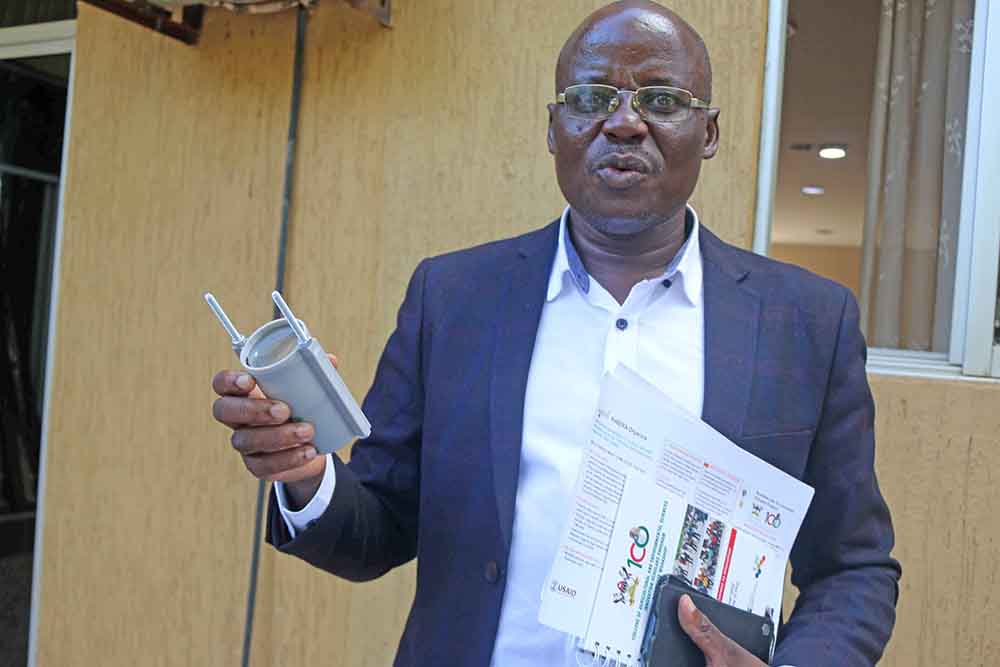For decades, African organic farmers have been finding it hard to penetrate the global market to sell their produce due to challenges ranging from poor market access, pests and diseases and contamination, among others.
This has greatly hindered their capacity and ability to produce on the large scale thus keeping them in a vicious cycle of poverty while susceptible to diseases.
This, however, triggered researchers from Makerere university to spend sleepless nights thinking about which solution can be sought to the major challenges.
The multidisciplinary team led by Prof. Fred Kabi from the College of Agriculture and Environmental Sciences (CAES) involving software, mechanical, electrical engineers, biophysicists and biochemists with ordinary minds came up with on extra ordinary solutions KeBERA innovation after discovering that there is a big challenge of limited access of Africa to the global market especially for organic farmers.
“African share of the global market is only less than 3.5%, but if you talk about the Sub–Saharan Africa, its share is only less than 1.7% and moreover most of these countries,40% of their GDP goes to imports. This means Uganda has an imbalance of trade, an indication that Africa is in a crisis with limited job opportunities, hunger and poverty,” explained Kabi.
“As researchers, we discovered that Uganda has a competitive advantage enshrined in its organic agriculture. Being second to India in terms of organic Agriculture whose global market is over $100b, we asked ourselves how can Uganda’s small holder farmers be awakened to tap into the $100b.
We came up with a proposal under CAES-ISP, the innovation scholar programme funded by Michagan state University and we began a process of doing research in a conventional manner where we have to understand and co-create the solution from the problem identified together,” Kabi added.
Under this process, they visited the major organic growing areas and together identified the problem.
“We called the farmers in a workshop environment and used the data collected from them to model the problem together but also asked them to suggest the solution.”
They proposed that in case we came up with a solution that can reduce the cost of certification, they could be able to access a better market place.
“Together, we identified that our major challenge was certification and lack of knowledge amongst the organic’s farmers. They suggested that if we could come up with an ICT-based solution to solve this challenge, that would be a game changer and together we came up with an idea of an ICT equipment we could be able to prototype to be able to solve this challenge.
“As I speak, we are looking at the different prototypes which can be able to taste organic foods, the plants and the soil against inorganic contaminants because certification of organic foods is based on the nonexistent contaminants that can be dangerous to human beings.
“We are happy to be coming up with a solution that is cheap through using science to can scan the food, the water and can be able to tell that this food has been contaminated” Kabi said.
He explained that the equipment has been hinged with the participatory guarantee systems that have been based on trust.
This solution, he noted, will generate data that will support the organic farmers to access the market with information adding that it’s going to take Uganda to another level in order to access better organic market places locally, regionally, and globally.
“If you pass water in the machine, it can scan it, and you are able to see on your phone that this is green, but if you brought a chemical contaminant like Rocket and scan it, it will show red indicating a no-gone zone but if the contamination is medium, it will show yellow indicating that you could eat it if not so much scared and green is giving you assurance that this is the right food you can eat without any fear,” Kabi said.

The equipment he said will also help in addressing issues of mycotoxins especially aflatoxin found in maize and ground nuts but also ochratoxins found in coffee.
The equipment according to Kabi will be using QR codes and can trace the farmer who produced the food on the market, his village, subcounty and his district, adding that they are currently finalizing with testing all the chemicals.
“We have done over 80% in terms of software,70% hardware and we can guarantee testing the water, some chemicals, traceability, geolocation and E-ecommerce.
We are hopeful that this will solve the challenges of poverty, hunger and unemployment amongst the youths,” he said.





